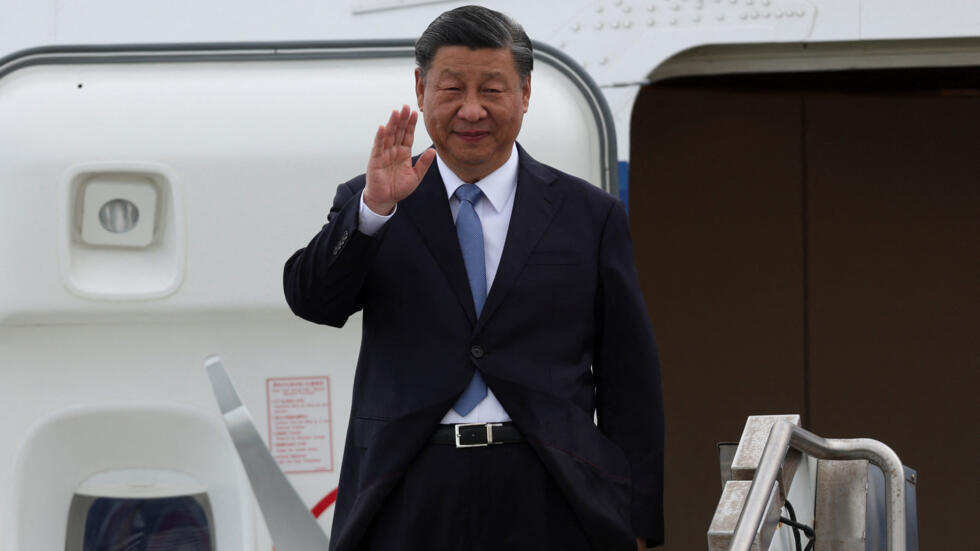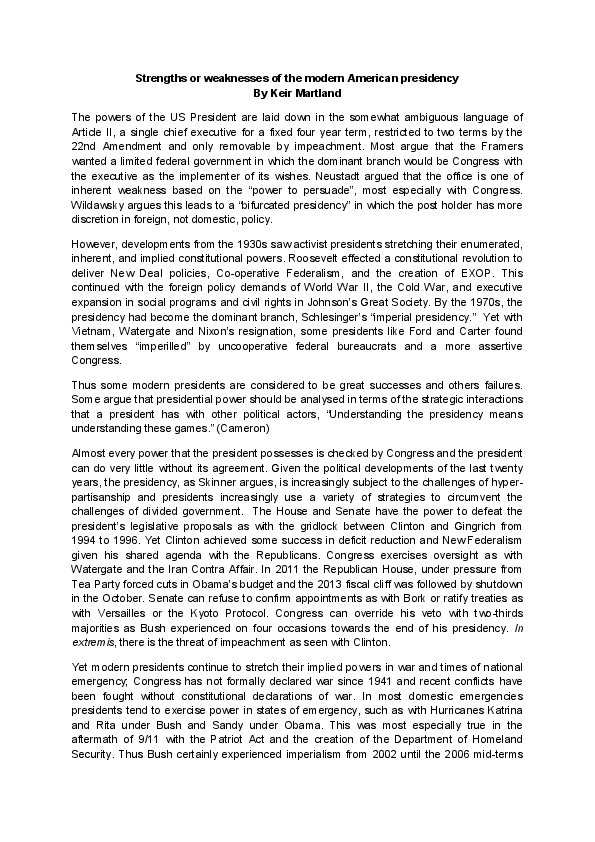China's High-Stakes US Deal: The Role Of Xi's Experts

Table of Contents
Identifying Key Players: Who are Xi Jinping's Top Economic and Foreign Policy Advisors?
Understanding the strategic landscape of China's high-stakes US deals necessitates identifying the key players advising Xi Jinping. These individuals, possessing deep expertise in economics, foreign policy, and international relations, significantly shape China's negotiating positions and strategies.
The Role of the Politburo Standing Committee:
The Politburo Standing Committee (PSC) holds ultimate authority within the Chinese Communist Party (CCP). Several members possess significant influence over economic and foreign policy decisions directly impacting US-China deals. Their expertise and experience often dictate the overall approach to negotiations.
- Li Qiang: The Premier of the State Council, Li Qiang, plays a crucial role in shaping China's economic policies and strategies impacting bilateral trade with the US. His background in economic management and regional development informs his approach to negotiations.
- Wang Yi: Previously the State Councillor and Minister of Foreign Affairs, Wang Yi's extensive experience in diplomacy and international relations significantly shapes China's foreign policy towards the US. His understanding of global power dynamics influences negotiation strategies.
- Wang Huning: A key ideologue within the CCP, Wang Huning's influence extends to shaping the overall narrative and ideological framing of China's interactions with the US. His expertise guides the broader strategic direction.
These individuals, along with other PSC members, bring diverse perspectives and experiences to the table, leading to a complex and often nuanced approach to US-China negotiations. Their educational backgrounds, often encompassing advanced degrees from prestigious Chinese and international universities, further bolster their expertise in navigating these high-stakes deals.
Think Tanks and Research Institutes:
Beyond the PSC, influential Chinese think tanks and research institutes provide critical input shaping policy decisions regarding China's high-stakes US deals. These institutions conduct extensive research on US-China relations, offering insightful analysis and recommendations to policymakers.
- The Chinese Academy of Social Sciences (CASS): CASS is a prominent think tank that produces in-depth research on various aspects of international relations, including US-China relations. Their publications frequently influence policy discussions.
- The Carnegie-Tsinghua Center for Global Policy: This joint center fosters research and dialogue on global issues, including those directly relevant to US-China interactions. Its research often informs policy positions.
However, it's crucial to acknowledge potential biases within these institutions. Their research and recommendations often reflect the CCP's official line, potentially limiting the range of perspectives considered in policymaking regarding China's high-stakes US deals.
Strategic Approaches: How Xi's Experts Shape Negotiation Strategies
Xi Jinping's advisors employ sophisticated strategies to navigate the complexities of negotiating with the US. These strategies often involve a delicate balance between cooperation and competition, while simultaneously managing inherent risks and uncertainties.
Balancing Cooperation and Competition:
Xi's advisors adopt a nuanced strategy balancing cooperation in areas of mutual interest with firm competition in areas where strategic divergence exists. This approach seeks to maximize China's economic gains while simultaneously asserting its geopolitical influence.
- Examples: The Belt and Road Initiative (BRI) reflects a strategic effort to enhance global economic integration while simultaneously challenging US-led economic dominance. Simultaneously, cooperation on issues like climate change demonstrates a willingness to work with the US when advantageous to China's overall strategic goals.
- Long-term effects: This approach has created both opportunities and challenges in US-China relations. Cooperation on specific issues has been productive, but the underlying competition fuels an often-tense dynamic that impacts global stability.
Managing Risk and Uncertainty:
Xi's advisors employ diverse strategies to assess and mitigate risks inherent in high-stakes negotiations with the US. These strategies often involve a combination of economic leverage, diplomatic pressure, and information warfare.
- Risk assessment: Before engaging in significant deals, a thorough assessment is conducted, analyzing potential risks and benefits, considering possible US countermeasures.
- Mitigation strategies: These can include economic sanctions, diplomatic maneuvers aimed at influencing international opinion, and information campaigns to shape public perception in both China and the US.
Impact and Analysis: Assessing the Success and Failures of Xi's Expert-Driven Approach
Analyzing specific China's high-stakes US deals reveals both successes and failures influenced by Xi Jinping's advisors. Examining these cases provides valuable insights into their strategic thinking and effectiveness.
Case Studies of Successful and Unsuccessful Deals:
- Successful Deals: Certain trade agreements, particularly those focusing on specific sectors like agricultural products, have been successful in advancing China's economic interests.
- Unsuccessful Deals: Negotiations on technology transfer and intellectual property rights have often ended in stalemate, highlighting the challenges of reconciling divergent national interests.
These case studies demonstrate that the effectiveness of Xi's advisors' strategies depends heavily on the specific context of the negotiation and the willingness of both sides to compromise.
The Future of US-China Relations:
The ongoing influence of Xi's expert advisors will likely shape the trajectory of US-China relations for years to come. Their actions will have significant global ramifications.
- Challenges: Maintaining a balance between cooperation and competition will become increasingly challenging. Rising tensions over Taiwan and technological rivalry could escalate.
- Opportunities: Potential collaboration on global issues like climate change and pandemic prevention could yield positive outcomes.
Predicting the future is inherently difficult; however, understanding the strategic thinking of Xi Jinping's advisors is critical for navigating this complex and volatile relationship.
Conclusion: Understanding China's High-Stakes US Dealmaking
Understanding China's high-stakes US deals requires a deep understanding of the roles played by Xi Jinping's expert advisors. Their influence shapes negotiation strategies, impacting both bilateral relations and the global landscape. Their strategic approaches, balancing cooperation and competition while carefully managing risk, significantly influence the outcomes of these critical negotiations. Further research and analysis of China's high-stakes US dealmaking processes and the advisors who shape them are crucial for informed decision-making in international affairs. Explore related articles and resources to gain a deeper understanding of this complex and evolving relationship.

Featured Posts
-
 Toezichthouder Npo Belooft Snelle Actie Na Gesprek Leeflang
May 15, 2025
Toezichthouder Npo Belooft Snelle Actie Na Gesprek Leeflang
May 15, 2025 -
 Padres Vs Dodgers Will The Padres Thwart The Dodgers Strategy
May 15, 2025
Padres Vs Dodgers Will The Padres Thwart The Dodgers Strategy
May 15, 2025 -
 The Trump Biden Presidency A Look At Their Strengths And Weaknesses
May 15, 2025
The Trump Biden Presidency A Look At Their Strengths And Weaknesses
May 15, 2025 -
 De Rol Van De Npo Toezichthouder In De Zaak Hamer Leeflang Bruins
May 15, 2025
De Rol Van De Npo Toezichthouder In De Zaak Hamer Leeflang Bruins
May 15, 2025 -
 Avalanche Vs Maple Leafs Expert Picks And Predictions For March 19
May 15, 2025
Avalanche Vs Maple Leafs Expert Picks And Predictions For March 19
May 15, 2025
